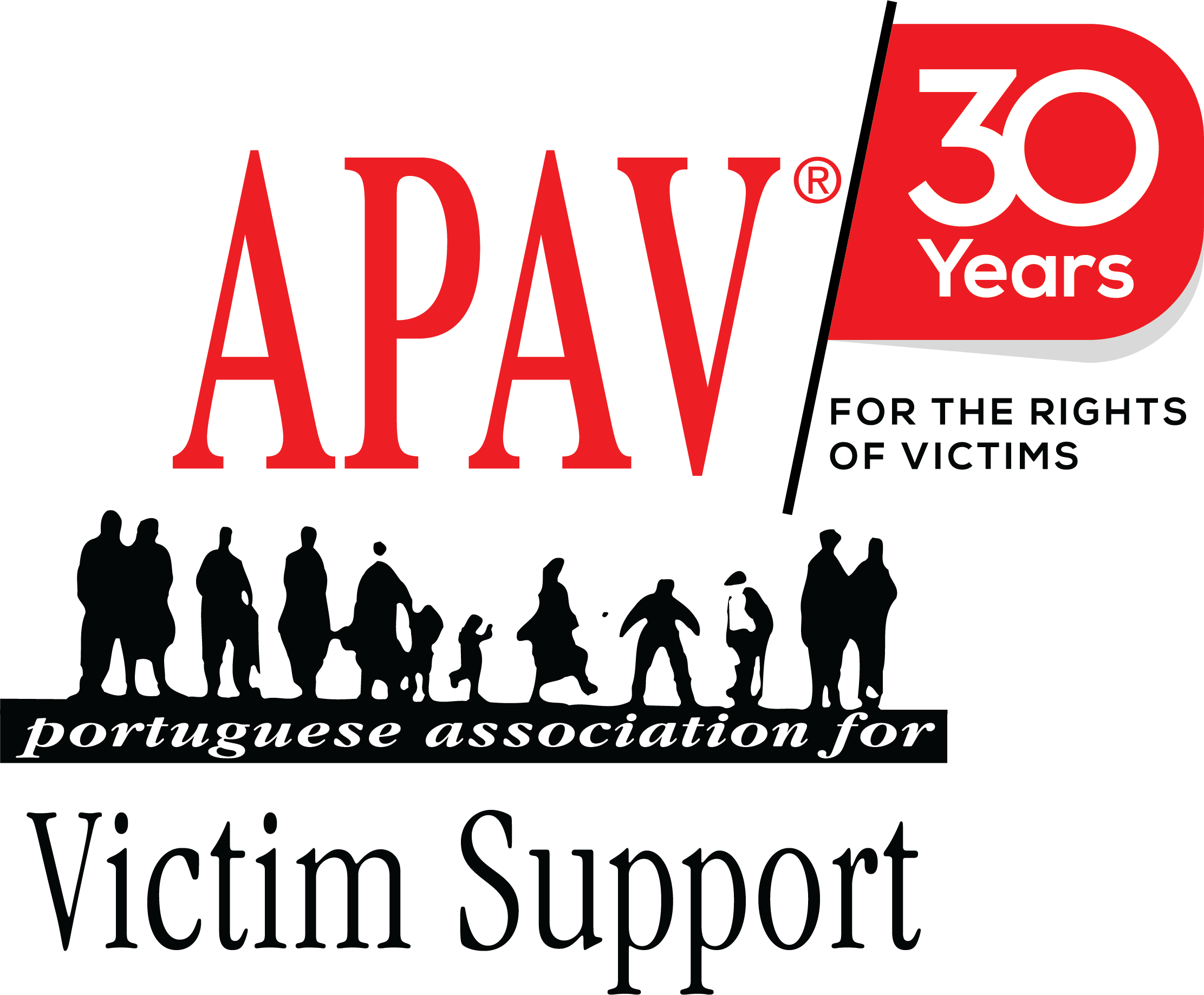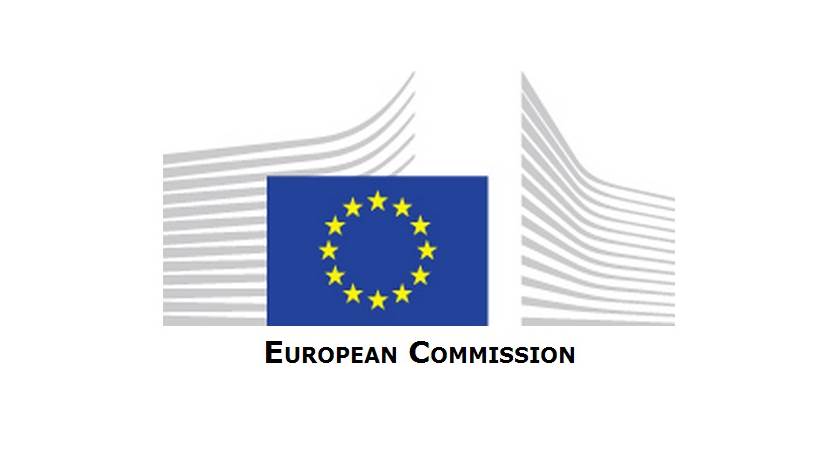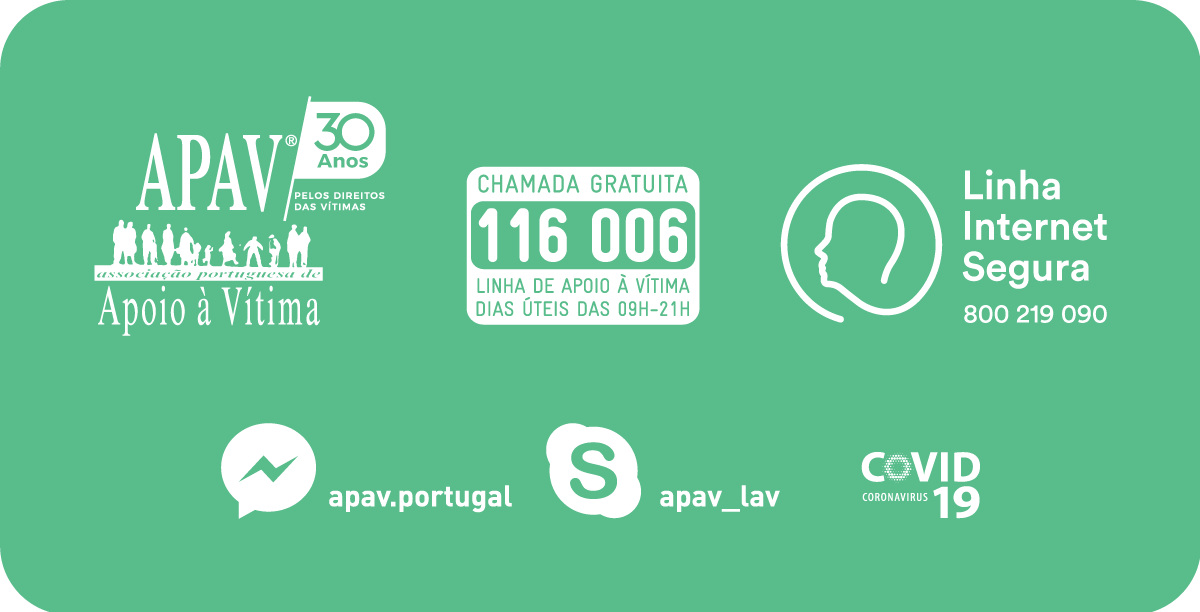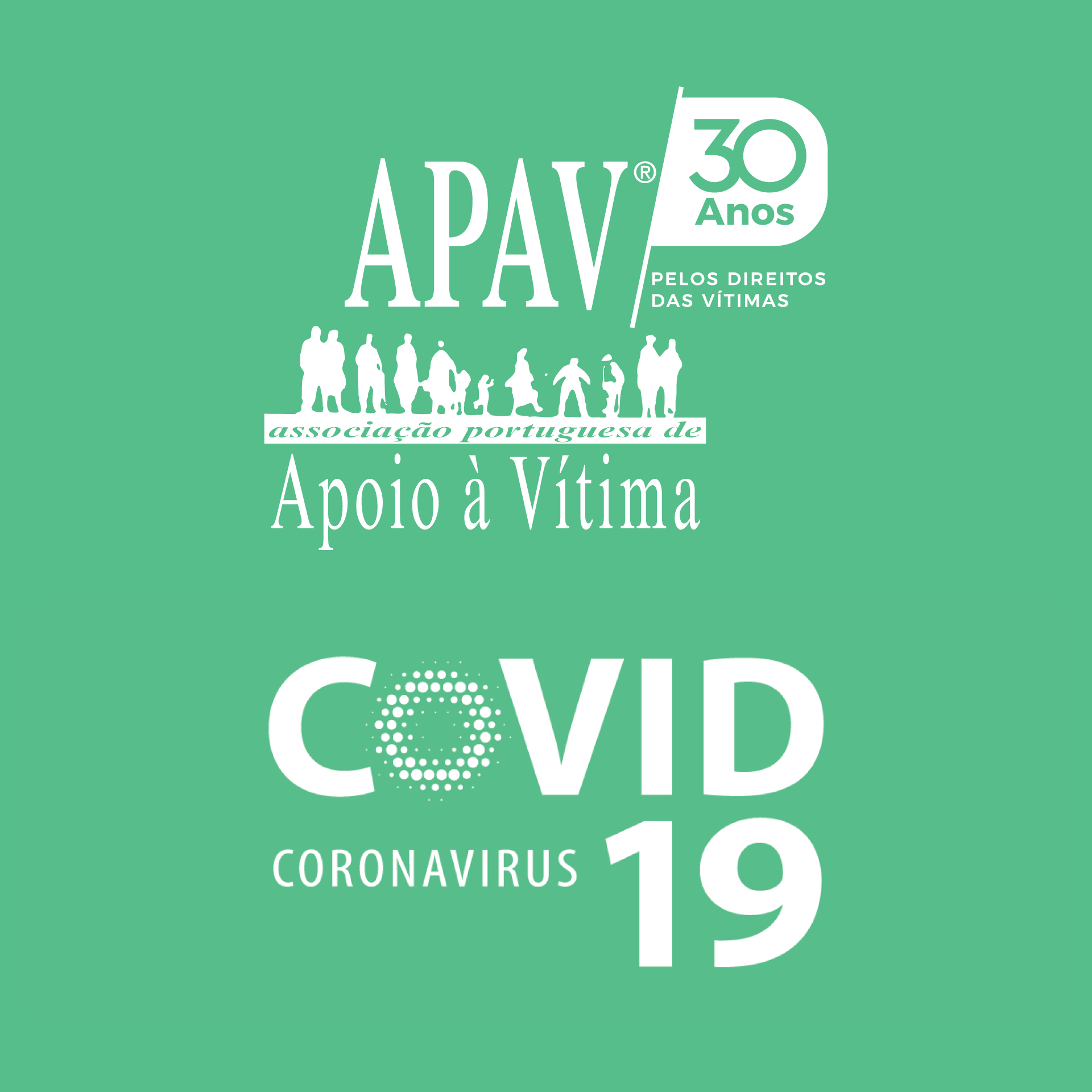
General Assembly’s Postponement

APAV’s Ordinary General Meeting on the 23rd march will be postponed by decision of APAV’s Chairman of the General Assembly, in accordance with article 4º of Decree-Law nº10-A/2020, of 13th march, which, given the current national state of emergency, extends the deadline for General Meetings.
European Comission interviews APAV on its terrorism victims’ support

By occasion of European Day of Remembrance of the Victims of Terrorism, specialized network Support to Family and Friends of Victims of Homicide (RAFAVH)’s manager Bruno Brito was interviewed by the European Comission in order to discuss APAV’s work on the support of terrorism victims and their families and friends.
Full interview here.
COVID-19 | How to protect yourself from online scams

The massive amount of information about COVID-19 currently available facilitates crimes like phishing, which take advantage of the social fear of the sometimes mortal virus.
How does it work?
Cybercriminals send emails pretending to be from legitimate organizations with information on the new coronavirus. In those emails, there are files attached supposedly containing data on the most recent developments of the epidemic, for example, but that are, in fact, intended to make you download malicious software to your devices.
The malicious software – malware – may allow for the cybercriminal to take control of your device, registering everything you write or accessing your personal information and financial data, which can lead to identity theft.
How to identify a COVID-19 related phishing email?
These emails can take many forms, but APAV has reunited some recommendations to help you identify them:
-Pay attention to emails which ask for your personal information, like your social security number or your login details on bank websites. Official organizations do not ask for these type of information, so do not answer these emails.
-Check the email adress or link. You can do this without clicking the link, by placing the mouse on top of it. Sometimes it is obvious that the adress or link are not legitimate, but be careful as cybercriminals can create believable imitations of real addresses. Delete the email.
-Pay attention to spelling or gramatical errors, as it is likely that an email which includes them is a phishing one. Delete the email.
-Pay attention to generic greetings such as “Hi”, “Good morning” or “Dear sir/madam”, as most phishing emails will not usually mention your name.
-Avoid emails that give you a sense of urgency. Phishing emails require immediate action, like for you to click a link or give personal information. Instead, delete the email.
APAV is available to help you
If you suspect to have received a phishing email or were a victim to this kind of online scam, contact APAV’s Safe Internet Line by calling 800 21 90 90 or by emailing This email address is being protected from spambots. You need JavaScript enabled to view it..
COVID-19 has affected the lives of millions of people worldwide. It is impossible to predict its long term impact, but it is possible to take precautions to avoid being a phishing victim.
APAV joins Kaspersky against digital harassment

APAV and cybersecurity company Kaspersky have join forces to fight digital harassment, whose victims are mainly women. Kaspersky will be supporting APAV on the fields of violation of digital privacy and stalkerware, through prevention and by raising awareness to the theme, as well as by conducting studies and providing technical counselling on how to react in risk situations.
What is stalkerware? Imagine texting via WhatsApp. Googling. Looking an address up on GPS. You conduct these activities naturally on your smatphone with no idea that someone is silently monitoring every single move you make. Stalkerware consists of spyware apps installed in devices without the consent or awareness of the user.
Kaspersky’s analysis reveals that the number of victims of this online harassment practice has increased around 67% worldwide, going from 40.386 to 67.500 between 2018 e 2019. In Portugal, the numbers have gone from 96 to 189, which corresponds to an increase of 97% in the same period.
Ricardo Estrela, APAV’s Internet Safe Line manager, states that “stalkware deserves our attention. Not only because it is a form of cybercrime, but also because there is a high chance that these victims have also suffered, or are currently suffering, some type of physical or psychological violence at the hands of their partner. It is necessary to raise awareness to this problem in order to facilitate its identification and ways to act. Many of the victims do not know how their aggressors have access to so much personal information, which a lot of the time stops them from reporting these situations by lack of proof”.
APAV’s Safe Internet Line supports cyberstalking victims for free and confidentially - 800 219 090. This service not only gives users advice on safe internet practices, but also facilitates the report of illegal content available online. In 2019, Sfe Internet Line registered 7 crimes related to illegitimate access, 3 of which were stalkerware.
COVID 19 | APAV spreads Criminal Police warning about cyber threats

APAV spreads the Criminal Police warning about cyber threats in the context of the COVID-19 public health crisis. In international crisis scenarios, cybercriminals traditionally take advantage of the social alarmism and media attention provoked by the situation for their cyber-attacks.
The current pandemic, due to the spreading of virus COVID-19, is no exception. In fact, a high number of cybercriminals are using the theme as cover up for their attacks. Since february, different types of cyber attacks have been registered:
-Phishing (by email, SMS or social media) by pretending to have a connection to official organizations such as World Health Organization, UNICEF or health investigation centers and laboratories, leading people to share personal information or to open files which instead of COVID-19 related information download malware;
-Promotion of digital plataforms or apps that supposedly provide real time information about the pandemic, but which are aimed, in reality, to download malware, including ransomware;
-Digital fraud scams shared by email or in social media which promote crowdsourcing in order to collect funds for false campaigns to buy medical and self-protection material;
-SMS informing that, according to the law, extraordinary measures are being applied and that all national citizens will be vaccinated and that, in order to later receive reimbursement of expenses, people should pay the amount defined in the SMS;
Given these situations, people are advised to take extreme caution concerning digital contents related to COVID-19, and to prioritize official and reliable sources of information.








